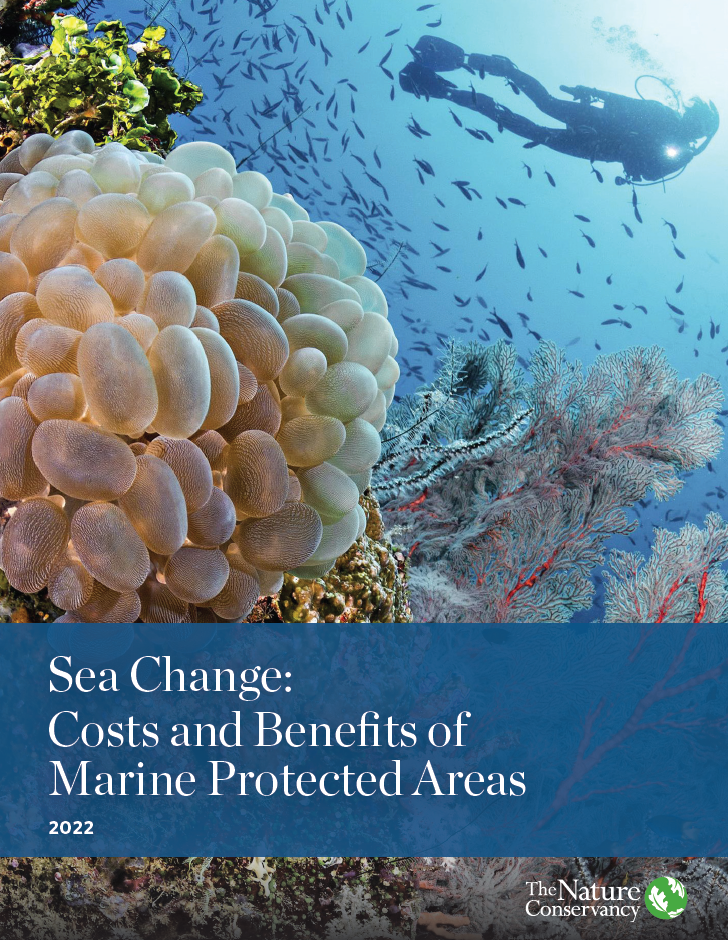Sea Change: Quantifying the Costs and Expected Benefits of Large-Scale Ocean Conservation
As climate change, overfishing and ever-increasing pollution put pressure on marine habitats and drive biodiversity loss, coastal nations are seeking solutions.
The global 30x30 initiative – which includes an effort to protect 30% of the ocean by 2030 – is one important approach to improving ocean health. Yet many nations cannot move forward with setting and implementing protection goals unless they have better estimates of the economic implications, financing gaps and expected benefits of marine protected areas (MPAs).
Our new Sea Change paper offers resources for leaders planning for durable ocean protection.
Estimates of the costs and benefits of 30% area-based conservation for a country’s ocean are critical to negotiating and structuring finance packages that create adequate and sustainable cash flows for marine conservation into the future. However, these estimates are often needed before the exact location, size and coverage of a comprehensive ocean plan is developed. Despite its importance, information on the costs and benefits of establishing, managing and enforcing marine conservation has been expensive and time-consuming to obtain.
The Nature Conservancy is working with economists and planners to estimate ranges of costs and benefits of 30% ocean protection to help nations plan for their own best futures. Sea Change: Costs and Benefits of Marine Protected Areas expands and builds on previous studies on MPA costing, fills knowledge gaps, and helps policy makers, practitioners, and funders better understand the possible financial implications of setting ambitious ocean-protection commitments. Innovation in financing and planning can ensure representative, well-connected and equitable networks of MPAs can be effectively managed for durable marine protection.


Sea Change Reports in French and Spanish
Sea Change - Supplemental Materials
Costs and Benefits of Marine Protected Areas
Download the Supplemental MaterialsSupporters made this research possible, including Becht Family Charitable Trust, Oceans 5, TED Audacious Project & Jeff and Laurie Ubben.
Global Insights
Check out our latest thinking and real-world solutions to some of the most complex challenges facing people and the planet today.




